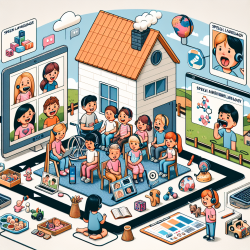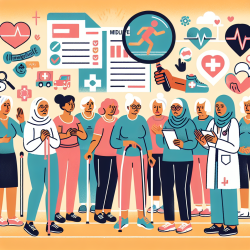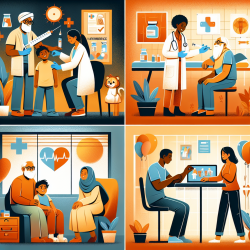Introduction
In the rapidly evolving landscape of mobile health (mHealth) technologies, understanding privacy and data ownership is crucial for practitioners. The research article "Developments in Privacy and Data Ownership in Mobile Health Technologies, 2016-2019" provides insights into the challenges and regulatory frameworks surrounding these issues. This blog post aims to highlight key findings from the research and suggest ways practitioners can enhance their skills and ensure better outcomes for their clients.
Key Findings
The research identifies several themes related to privacy and data ownership in mHealth technologies:
- Data Transmission and Storage: Security of data during transmission and storage remains a significant concern. Previously de-identified data can often be re-identified, posing privacy risks.
- User Consent and Privacy Policies: Many mHealth applications lack clear and accessible privacy policies, leading to inadequate consumer-informed consent.
- Global Attitudes Toward Privacy: There is a wide variety of global perceptions regarding health data privacy, influenced by cultural and legislative differences.
Implications for Practitioners
Practitioners can take several steps to improve their practice in light of these findings:
- Enhance Data Security Measures: Implement robust data encryption and secure data transmission protocols to protect client information.
- Educate Clients: Provide clients with clear, understandable information about how their data is used and the measures in place to protect it.
- Stay Informed: Keep up-to-date with international privacy regulations and adapt practices to comply with the most stringent standards, such as the GDPR.
- Advocate for User-Friendly Policies: Encourage the development of concise and easily understandable privacy policies that empower clients to make informed decisions about their data.
Encouraging Further Research
While the research provides a comprehensive overview of current challenges and frameworks, there is a need for ongoing investigation into effective privacy measures and data ownership models in mHealth. Practitioners are encouraged to engage in further research and collaborate with technology developers to create solutions that prioritize client privacy and data security.
Conclusion
By understanding the complexities of privacy and data ownership in mHealth, practitioners can better protect their clients' information and enhance the quality of care. Implementing the findings from the research and advocating for improved privacy practices will contribute to creating safer and more effective mHealth environments.
To read the original research paper, please follow this link: Developments in Privacy and Data Ownership in Mobile Health Technologies, 2016-2019.










